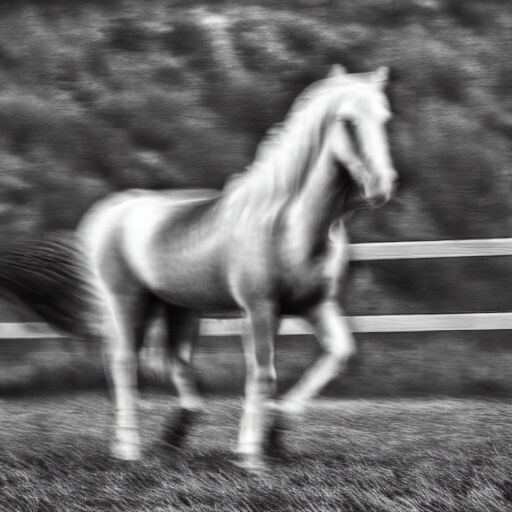Memory
Is Aphantasia a Memory Disorder?
A new theory challenges the idea that aphantasia is a visual impairment.
Updated October 25, 2023 Reviewed by Abigail Fagan
Key points
- Aphantasia is the inability to consciously generate visual imagery.
- Aphantasia affects more than just the visual system.
- Memory problems are common among people with aphantasia.
Congenital aphantasia is considered the inability to consciously generate visual imagery. Although there are early descriptions of this disorder going back to Aristotle, it was not formally described in the scientific literature until 2015. Aphantasia affects around 4 percent of the population, with those affected reporting either a greatly diminished or total inability to bring to mind mental images (while awake). Half of people with aphantasia report a diminished ability to imagine information from other senses as well. They cannot, for example, generate the sound of a song in their mind, or mentally conjure the smell of a rose. Because other sensory modalities are affected, some researchers argue that aphantasia might not be a visual imagery disorder at all. It might be a memory disorder.
Andrea Blomkvist, a Postdoctoral Researcher at the Centre for Philosophical Psychology at the University of Antwerp, published an article in the journal Mind & Language in July of 2022 wherein she outlines an argument that aphantasia should be understood as a cluster of impairments affecting the episodic system involved in memory and recall.
“We have no reason to think that the inability to form voluntary visual imagery should take precedence over the other impairments in defining the condition, even though the condition was first identified in this way,” argues Blomkvist. “Aphantasia is characterised by a cluster of impairments, of which one is the inability to form voluntary visual imagery.”
To understand the crux of her argument, Blomkvist gives an example of a girl named Matilda trying to remember riding a horse at her old riding school. For this to happen, Matilda’s conscious mind issues commands to reconstruct a memory—that is, she engages her episodic retrieval process. It assumes that somewhere in Matilda’s brain (possibly the hippocampus) is a kind of “index” for our memories which contains information about the location of all the sensory information that could be used to reconstruct the memory. This could include visual, auditory, gustatory, tactile, olfactory, and affective information.
Memories contain much more information than sensory information. There are non-episodic elements like spatial information (that feeling of where the event took place), and semantic information (verbal or conceptual information). People with aphantasia typically do not have any problem with semantic or spatial information when recalling an event. But they do have trouble recalling the episodic elements, suggesting that it is the episodic retrieval system that is faulty.
If Matilda had aphantasia, she might be able to tell you that she remembers riding her horse, the horse’s name, and even what color the horse was (i.e., semantic information). She might be able to articulate where she was when riding the horse and the path they took into the woods (i.e., spatial information). But she cannot conjure a mental image of the horse (i.e., she cannot see the color of the horse even though she might know it was brown), or what the horse smelled like, or the sounds of the leaves rustling as she rode the horse through the woods. For whatever reason, episodic information involving the senses is difficult—if not impossible—for Matilda to retrieve.
Because the episodic system is also involved in imagining future events, a fault in the episodic system also explains why people with aphantasia cannot call to mind imaged sensory information. They cannot see/hear/smell anything when asked to imagine in their mind's eye what it might be like to walk on a beach or eat an apple.
The cause of this fault with the episodic system is, according to Blomkvist’s theory, still unknown. “Either there is a problem with the memory index itself, or with the retrieval processes downstream from the memory index or with the recombination process,” suggests Blomkvist.
A recent study published in the Journal of Neuropsychology in October of 2022 investigated more general memory problems in people with aphantasia. The results showed that people with aphantasia are not just poor at recalling autobiographical events that happened in their own past (like Matilda and her horse) but are generally worse at all memory tasks. This includes both short- and long-term verbal memory tasks.
At first glance, this finding seems at odds with Blomkvist’s idea that it is only the episodic and not the semantic/verbal system memory that is at fault. But the authors of this study point out that when faced with a verbal memory task, many people use visual imagery as a tool to help them recall words and concepts. This is part of dual-coding theory which states that “knowledge can be represented both visually and verbally, meaning that one can remember a picture of a dog and/or a verbal description of it.”
This is how, for example, Joshua Foer managed to win the USA Memory Championship in 2006 as he described in his book Moonwalking with Einstein. By creating vivid visualizations associated with the words he was trying to memorize (i.e.., the infamous memory palace or method of loci technique described by Cicero 2,000 years ago), Foer could more easily retrieve memories, presumably because he was able to engage both semantic and episodic memory systems in full force. People with aphantasia, however, might not have the ability to code memories with both systems, which would thus “explain deficits in verbal memory due to missing complementary visual imagery strategies,” according to the authors of the study.
Because aphantasia is relatively new and only now receiving research attention, these theories and ideas about what is causing it to happen—and what it even is in the first place—are changing rapidly. It is an exciting time to be an aphantasia researcher. And an exciting time to have aphantasia!
References
Blomkvist, A. (2022). Aphantasia: In search of a theory. Mind & Language.
Monzel, M., Vetterlein, A., & Reuter, M. (2022). Memory deficits in aphantasics are not restricted to autobiographical memory–Perspectives from the Dual Coding Approach. Journal of Neuropsychology, 16(2), 444-461.
Zeman, A., Dewar, M., & Della Sala, S. (2015). Lives without imagery – Congenital aphantasia. Cortex, 73, 378– 380. https://doi.org/10.1016/j.cortex.2015.05.019
Foer, J. (2012). Moonwalking with Einstein: The art and science of remembering everything. Penguin.





